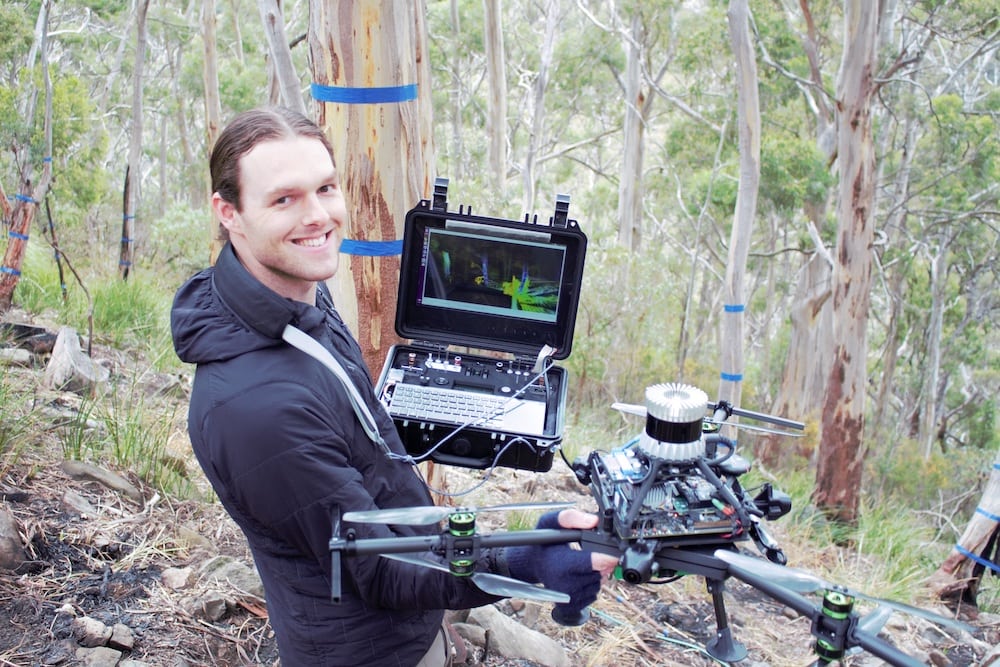In August we showcase the University of Tasmania’s Australian Research Council (ARC) Industrial Transformation Training Centre for Forest Value and its work in capacity building for the forest industries and wood products through training and applied research.
The ARC Industrial Transformation Training Centre for Forest Value was established in 2015 and since then, several of its projects have had a strong focus on ecosystem services and sustainability. There is also a direct link to TERN in that Tim Wardlaw, TERN’s Tasmania node leader and manager at TERN’s Warra Tall Eucalypt SuperSite, is an affiliate of this Centre.
The research program of the ARC Training Centre for Forest Value is structured into three themes that span the forest products supply chain. Two themes and projects of particular relevance to TERN are:
Theme 1. Sustainable forest production and certification researches the establishment, growth and management of forests planted for restoration and production.
One of the current projects in this theme is The business case for trees on farms. PhD candidate Zara Marais is employing natural capital accounting principles to find new and effective ways to value the contribution that agroforestry plantings make to farming systems. Her work will involve collating known benefits such as timber production and shelter benefits as well as calculating the potential economic value of other environmental monitoring process.

Zara Marais talking with a landowner
Theme 3. Supply chain integration and information management aims to transform business practices and performance through the development and integration of innovative new technologies.
In Theme 3 PhD candidate Sean Krisanski’s project Development of an autonomous unmanned aerial system for below canopy laser scanning of forests is providing a mapping solution for areas of dense undergrowth and dense canopy, where ground-based methods are difficult or hazardous and above canopy methods struggle to penetrate to the stems. The end goal of this project is to be able to autonomously map a difficult region of forest in less time and in far greater detail than can humans, reducing inventory costs and improving worker safety.

Sean Krisanski with below canopy drone
Centre Director, Associate Professor Julianne O’Reilly-Wapstra, says that over the past five years the Centre has achieved what it was designed for, to provide opportunities for candidates and fellows to pursue industrial training, build research capacity within the forest industries and wood products sector and provide evidence-based solutions to industry identified problems.
“It’s been a busy yet exciting time for everyone at the Centre, as we focussed on one of our main aims – to produce industry-ready higher degree by research (HDR) graduates and postdoctoral fellows with broad perspectives of the forest industry.”
“The Centre combines a diverse set of partners from forest growers, to restoration managers to wood producers. Our PhD candidates and postdoctoral fellows work closely with industry and other stakeholders across the forest management landscape and within the forest products supply chain. Such experiences and skills are in demand in the sector”.
“Our valued industry collaborators have been committed to supporting our candidates and fellows for the 4-5 years, to help drive the Centre’s research activity. Outcomes will enhance productivity, profitably and sustainability along the forest industries supply chain and drive innovation in forest restoration and environmental planting activities.”
Associate Professor O’Reilly-Wapstra (source ARC media feature article June 2020)

L-R PhD Candidates Michelle Balasso, Sean Krisanski and Centre Director Julianne O’Reilly-Wapstra






